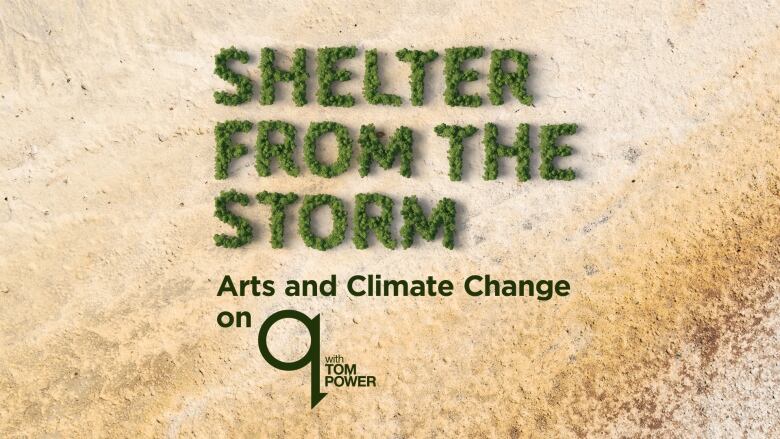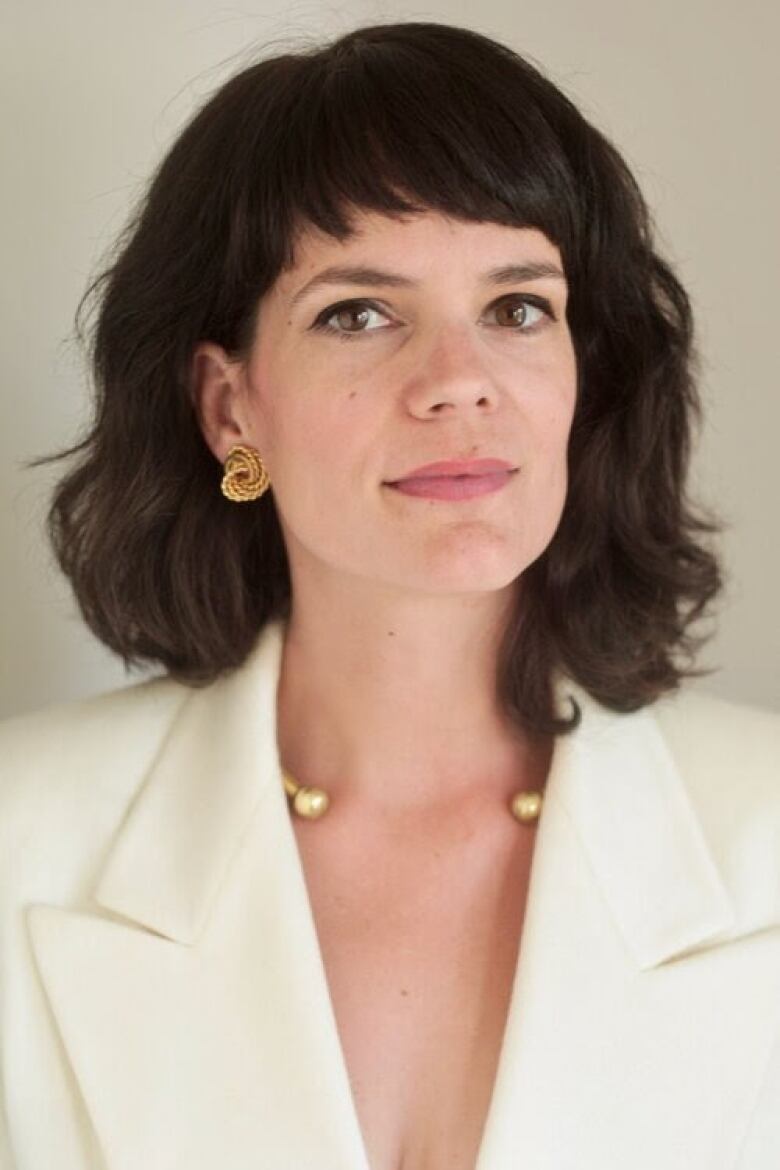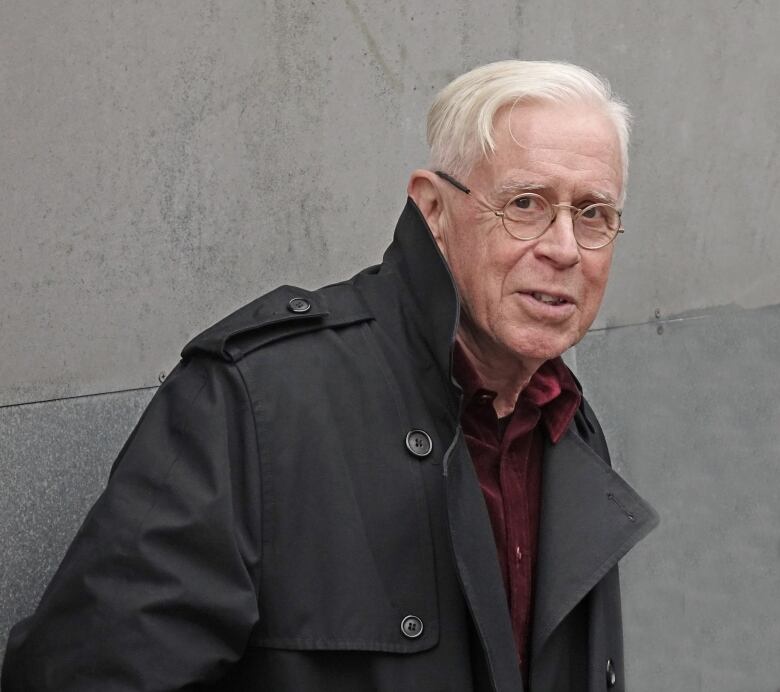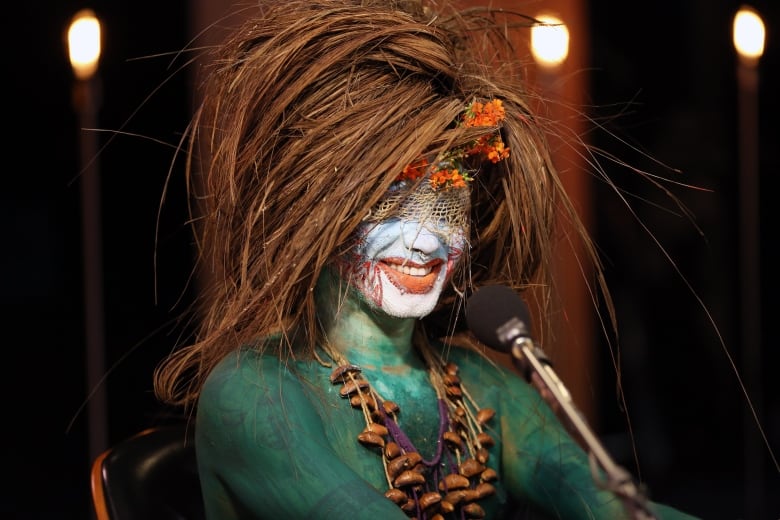Shelter from The Storm: Arts and Climate Change on Q
A special week-long series about art and the climate crisis

This week on Q (Jan. 31 to Feb. 4), host Tom Power will speak to artists who are tackling the biggest dilemma and existential threat of our time: climate change. We're calling it Shelter from The Storm: Arts and Climate Change on Q.
From music to fashion to film and more, hear from forward-thinking artists whose work is addressing and impacting environmental sustainability.
This post will be updated throughout the week. Listen to each segment below.
Monday, Jan. 31
Peter Garrett of Midnight Oil

For nearly five decades, the Australian rock band Midnight Oil has written songs about eco-justice and Indigenous advocacy. Now, with the release of its forthcoming album, Resist, the band will embark on its final tour ever. Lead singer Peter Garrett was twice president of the Australian Conservation Foundation and a former minister for the environment of Australia. He joined Tom Power to talk about his illustrious career with Midnight Oil and how the band has put environmentalism at the forefront of its music from day one.

Green filmmaking panel

Have you ever considered how climate-conscious your favourite TV show or movie was to make? Maybe you should — entertainment is one of the most polluting industries, second only to aerospace, according to some studies. On this week's screen panel, environmental sustainability expert Zena Harris and entertainment reporter Teri Hart unpack how studios and production companies are embracing green filmmaking practices, plus what we can do as consumers to push the needle.
Tuesday, Feb. 1
Animator Gyimah Gariba

As the creator of the new CBC Kids show Big Blue, animator Gyimah Gariba is illustrating how caring for one another will lead to caring for the planet. He spoke with Tom Power about why it's important to include kids in the climate change conversation and help them feel empowered to take action.
Sustainable fashion column

When you try on a new jacket or a pair of jeans, do you think about the story behind that item? Do you wonder what the carbon footprint of your clothes are, or whether a forest was destroyed to make the fabric? Elizabeth L. Cline wrote the book Overdressed: The Shockingly High Cost of Cheap Fashion more than a decade ago. She joined Tom Power to talk about the current state of the sustainable fashion movement — and how you can look good and do good for the planet at the same time.
Tamara Lindeman of The Weather Station
Tamara Lindeman of The Weather Station has a new muse — the environment. Learning about the destruction of our natural world has led the Toronto singer-songwriter from worry to fear to activism. That journey has now seeped into her latest album, Ignorance, which she says is more emotional than political or educational. The Weather Station joined Tom Power to talk about the record and why she thinks it's important to marry arts and activism.
Wednesday, Feb. 2
Singer-songwriter Bruce Cockburn

When Canadian singer-songwriter Bruce Cockburn wrote his hit single If A Tree Falls in 1988, he had no idea that it would still resonate in 2022. He joined Tom Power to reflect on that song, his environmentalism and how he feels artists can respond to the climate crisis today.
Climate change comedy panel

It's hard to find the funny in climate change, but Matt Winning and Rollie Williams are trying. Winning is a comedian and environmental economist, while Williams is a comedian with a master's degree in climate science. Both of them have been using comedy to engage people with environmental issues. They joined Tom Power to tell us how they're using jokes to talk to people about climate change — and whether there's actually anything to laugh about.
Amazonian drag queen Uýra Sodoma

These are unprecedented times for the Amazon region. As fires tear through the rainforest, one Brazilian biologist is spreading the word through art. It takes Emerson Munduruku hours to transform into their drag persona, Uýra Sodoma. Painted green beneath a straw headpiece, Uýra paddles to remote villages along the Amazon river. Their goal? Teaching local children how to respect and protect the forest.
Thursday, Feb. 3
Multidisciplinary artist Laakkuluk Williamson Bathory

Laakkuluk Williamson Bathory has lived in the North almost her entire life. The Iqaluit-based multidisciplinary artist has witnessed the impact of climate change on her community first hand. She joined Tom Power to explain how the climate crisis permeates all aspects of her art and life in the North.
Geneticist and broadcaster David Suzuki
For more than 40 years, David Suzuki has been a familiar face on our TV screens. As the host of CBC's The Nature of Things he's helped us understand how science shapes our world, and opened our eyes to issues like climate change. He spoke with Tom Power about bringing science into our living rooms and why, at 85 years old, he's not interested in slowing down.
Friday, Feb. 4
Artist and activist Syrus Marcus Ware

Black Lives Matter Canada co-founder Syrus Marcus Ware spoke with Tom Power about the latest installment in his MBL: Freedom project, and what it means to intersect his art and activism with his concerns for climate change.
Director Adam McKay

In his latest Hollywood blockbuster, Don't Look Up, director Adam McKay satirizes how humanity deals with catastrophic events like pandemics and climate change. The film boasts an ensemble cast of A-listers like Leonardo DiCaprio, Jennifer Lawrence and Meryl Streep. McKay joined Tom Power to discuss the polarizing reaction to the film and why comedy still has a place in uncertain times.
Musician, writer and academic Leanne Betasamosake Simpson

Anishinaabe musician, writer and academic Leanne Betasamosake Simpson joined Tom Power to talk about her latest album, Theory of Ice, and the ways the climate crisis and environmental justice are inextricably woven into her music and life.